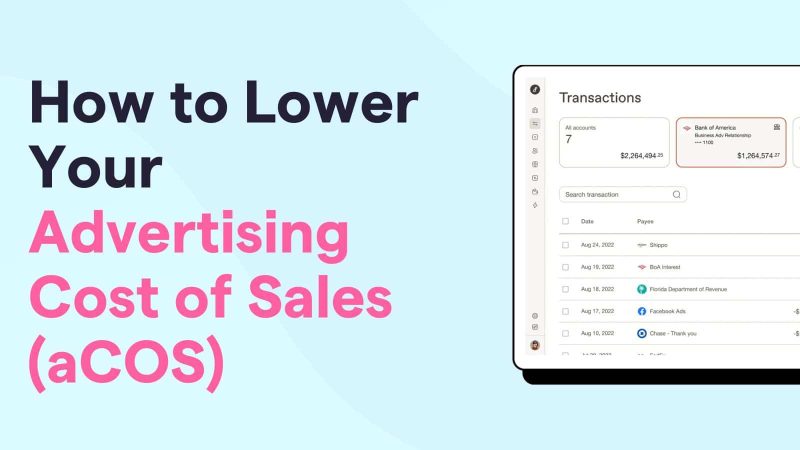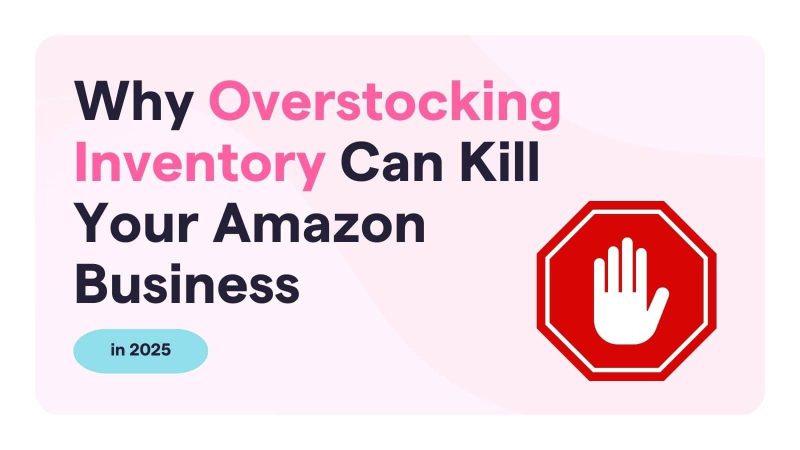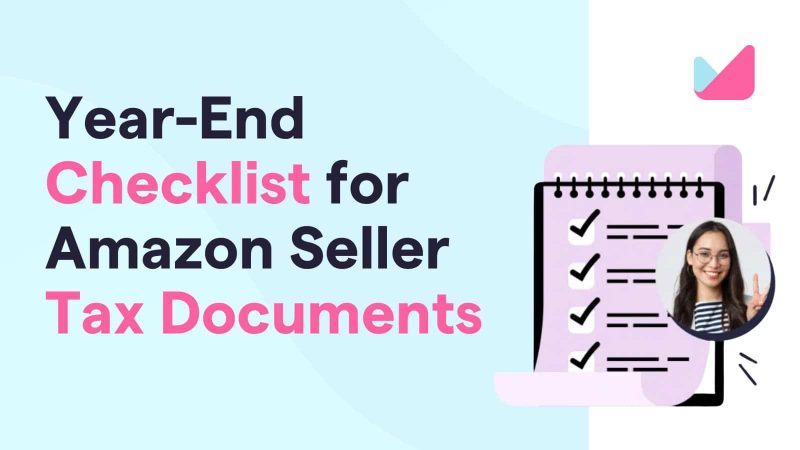Earlier this year, the team at Prosper Show hosted a successful conference for Amazon FBA sellers looking to keep up to date with all that’s been happening in the world of online retail. Michael J. Fleming of Sales Tax and More, in particular, demonstrated an impressive grasp of the ever-changing sales tax laws in North America. He spoke about Nexus, what it means and how it can affect US sellers on an individual basis.
This article takes a closer look at some of the core concepts and points raised by Michael during his speech. The original video can be found here.
As the name implies, Nexus is a financial or physical link to a place (or in this case, state) that can determine whether you are liable to pay taxes for selling in that state. This can become confusing due to the fact that different states have varying laws regarding this issue.
However, if you are audited by the state and found to be misinterpreting tax laws (even unintentionally), you can be hit with significant penalties and a large amount of back tax. While Fleming makes it clear that incarceration is not a common consequence for this crime, the financial fallout can be severe enough to warrant concern for many FBA sellers.
“We’re in a different world this year, than we were this time last year. States were finding people but it was a very labour-intensive way that the states were finding you. They were still finding you, but it was pretty hard for them.”
- Source (27 mins).
Fleming also predicts that it will not get any easier to comply with these rules. In fact, he suggests that there has been an increase in auditing in the last year or so due to different states suing Amazon for access to their sellers lists. This happened in Massachusetts in 2017. So while auditing used to be labour intensive, auditors now have easy access to information. This makes an audit more likely for an Amazon business.
AM I LIABLE FOR NEXUS?

Whether or not you are liable for Nexus depends on a number of factors. Fleming emphasizes that it can vary between states and business sizes. He compiled a list of the most common activities undertaken by FBA businesses that create Nexus in a state:
- Ownership of real property in the state.
- Ownership of personal property in the state.
- Leasing of real property in the state.
- Leasing of personal property in the state.
- Maintaining of an inventory in the state.
- Travel of employees into the state to conduct business (sales, training, deliveries etc).
- Use of independent sales or manufacturer’s reps in the state.
- Use of sub-contractors for repairs, maintenance or installations in the state.
- Delivery of property in seller owned vehicles in the state.
- Allowing employees to telecommunicate or use home office in the state.
In this case, real property takes the form of things like warehouses, offices or stores, whereas personal property refers to assets like machinery and equipment.
Ultimately though, Fleming boils these factors down into three main concerns for a business: Where do you live/conduct business? Where do you have inventory? Where does Amazon act as your agent? If you have a connection to the state through any of these, it is likely that you have Nexus and should register to pay sales tax in that state.
IS IT WORTH GETTING REGISTERED?

“For Coca-Cola, $100,000 is like a rounding error, it’s not very material to them. For me, $100,000 is a whole lot of money. So for each of you out there, what’s material to you is going to be different.”
- Source: (22 mins).
While following tax laws to the letter will cover you in terms of penalties, it may not be the most profitable thing for your business. Getting registered in every State in America is expensive for a business, so it pays to be smart about when and where you decide to register. Fleming makes a point of discussing how and when it can be worth getting registered in a state. He sums it up in five factors.
SALES VOLUME
“I can tell you what’s not material. I can’t make the math work in any state where your annual sales are going to be less than $3,000. The math just doesn’t make sense to me.”
- Source (23 mins).
If sales volumes are low, it may not be worth getting registered at all and simply risking the fallout should you get audited. If the overall sales volume is below $3,000 in any given state, the consequences for not obeying tax laws can be less damaging to your business than the cost of complying.
TAXABILITY
“Things are going to be taxed differently from state to state.”
- Source (24 mins).
Whether a product is taxable or not can depend on the type of product sold. Most FBA sellers deal in Tangible Personal Property (TPP), which is taxed in most states. However, Fleming gives some examples of minor exemptions that often occur in state tax. Some states exempt clothing items, and some exempt dietary supplements. These exemptions are common, so often it pays to learn whether or not your product is taxable in that state before proceeding to get registered.
RISK TOLERANCE
“If you can’t sleep at night, if this is keeping you up, and it does keep up a number of sellers, maybe that $3,000 number is yours.”
- Source (25 mins).
At this point during the speech, Fleming put the effect that sales tax issues have on the regular seller into perspective. He recommends that if you find yourself constantly worried about being audited, getting registered in states where you make even a small profit margin can be the correct decision to make. At the end of the day, as a business owner you must do what feels most comfortable for you.
CAPITAL RESERVES
“If you’re putting money aside just in case the state does find you, then you can have a higher risk tolerance”
- Source (25 mins).
This factor is fairly self-explanatory. If you have accumulated a healthy fund for protection in case of an unfavourable audit, then you have more agency to opt out of getting registered. The more money you have set aside, the higher your risk tolerance will be. However, for many businesses, the profits earned go right back into the business and become tied up in inventory. This scenario would lower your potential risk tolerance, as there would be very little funds available to pay fines if you are audited.
PROFIT MARGINS
“If you have a 2% profit margin, I’m thinking you absolutely need to have that $3,000 margin.”
- Source (26 mins).
The higher your profit margin for each product, the higher your risk tolerance can reasonably be set at. For instance, if you get audited and are found to owe the State tax, the fines will not likely bankrupt your business. However, if your profit margin is small, going out of business is a real possibility.
WHAT ARE MY OPTIONS?

“The state says that you should do it but to me, just because the state says you should do something doesn’t mean it makes good business sense.”
- Source (23 mins).
Fleming covers a number of potential actions to take in light of these fluctuating nexus laws. The first of which is to just do nothing. As we discussed, if your sales volume is low enough in a particular state, it might not warrant getting registered at all. Ultimately, taking this course of action depends upon how an audit would harm your business.
Another option could be just to concede defeat and get registered to pay the tax in every applicable state. This is often the option that FBA sellers take, as it avoids what Fleming calls “the greatest tragedy in sales tax”. He explains that this ‘tragedy’ happens when the customers could have been paying the tax the whole time through each transaction.
Because the seller did not register for sales tax, they couldn’t collect said taxes from their customers. When they get audited, the penalties and back tax end up getting paid off out of their own profits – instead of customers paying for it.
Fleming discusses amnesty as an option for those who know that they already owe sales tax. However, he made a point of recommending that nobody in the audience take this route. He reasons that while Massachusetts used to have a true amnesty that waived all penalties and back tax, state amnesties these days exclude the back tax – so you still end up owing a great deal of money.
Voluntary disclosure seems to be the path of least resistance when it comes to owing money in tax. You have the advantage of coming forward yourself, which will allow you to avoid hefty penalties. However, Fleming warns that you should still be prepared to owe a great deal of money to the state. This is a fairly expensive option.
Finally, there is the option of closing your business and reopening again as a new entity. Fleming argues that this is not a real option at all, but rather a disaster waiting to happen. Even if you reopen as a new business, if the states find you, then all your back tax returns will be due, plus penalties with interest applied. Overall, this option is fairly unviable.
SO WHAT HAPPENS NOW?

“The future looks a little bit bleak and I don’t think the feds are going to give us any cover whatsoever.”
- Source (36 mins)
Ultimately, Fleming’s conclusion was that this problem is going to get worse before it gets better. States are continually fighting to have their tax laws recognized by Amazon sellers, and as with Massachusetts this year, they seem to be making progress.
However, that is not to say there is one right option for any business. There are many potential solutions and the viability of each of them depends on the specific needs of your business. The main message to take away is to be prepared, and have a plan for how your business will weather the storm.
Michael J. Fleming can be contacted here for further discussion or detailed advice on US sales tax.
WANT TO LEARN MORE ABOUT HOW YOU CAN MANAGE SALES TAX LIABILITIES?
We have put together a 6 day email crash course that covers everything you need to know about sales tax for Amazon FBA sellers (in the United States). It takes a look at the most common strategies for managing your obligations, and tools that can simplify the process of calculating, collecting and remitting sales tax.
')}




